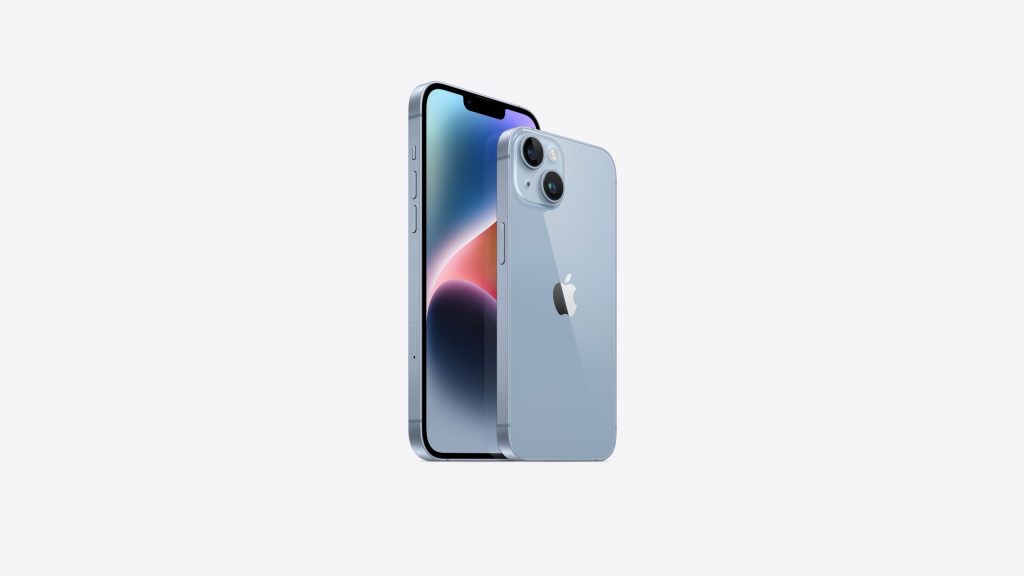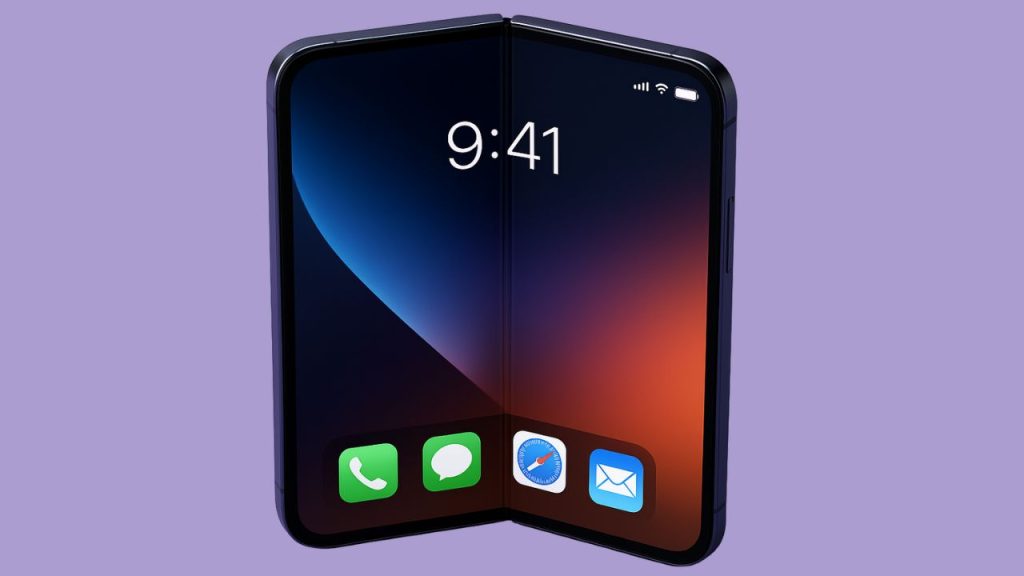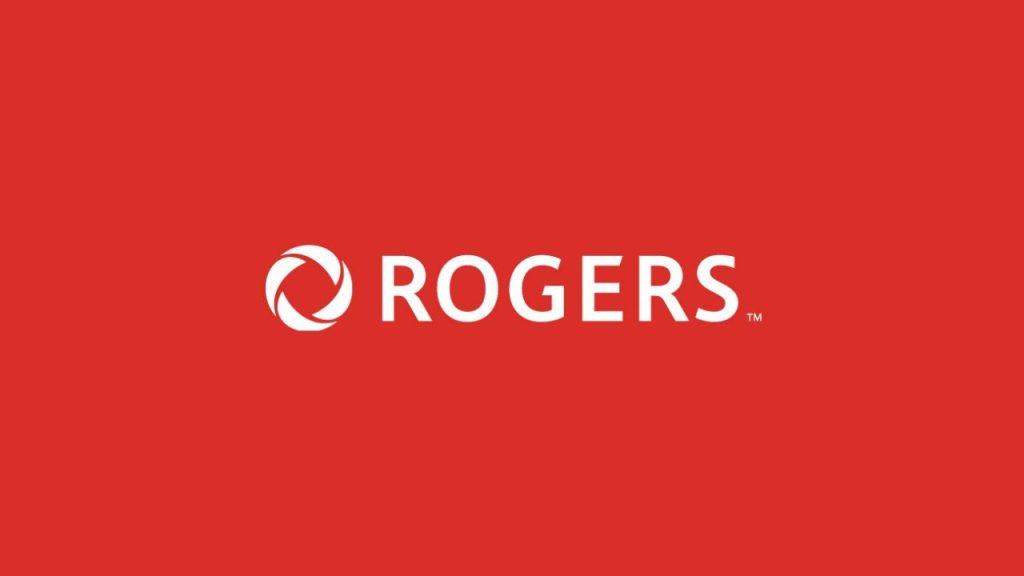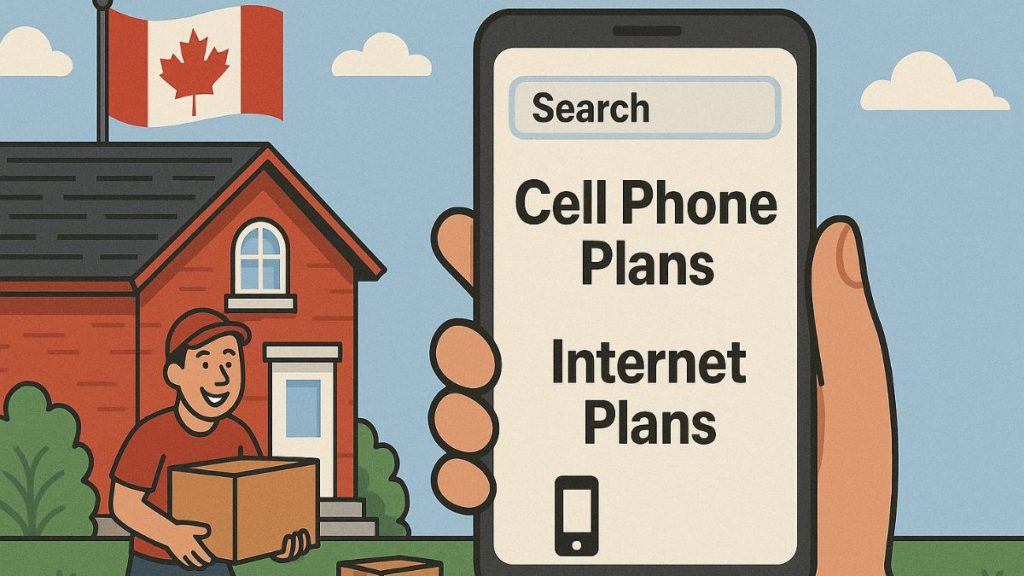(Translation of an original PlanHub article)
Apple has a year before it has to comply with European Union directives. Apple will be forced to open up the App Store, iMessage, Apple Pay, Webkit and even its Airtag feature to competition, should Canadians expect any changes?
Cover image credit: Apple
Are these going to be tough times for Apple? The Apple company would have mobilized its most important executives according to Bloomberg, in order to oversee deep changes that will take place on iPhone and more precisely on the software side.
Implemented on September 14, 2022, the Digital Market Art (DMA) and the Digital Services Regulation (DSA) are regulations put in place by the European Parliament in order to put an end to the domination of Gafam in Europe. Tired of seeing the American giants imposing their rules which are not based on any legal framework, Europe, more open to competition and infinitely less protective of its companies than the United States, has decided to impose laws that were non-existent in this environment.
App Store, Apple Pay, iMessage, Webkit, what will change?
If Apple wants to continue selling iPhones in Europe, the company has no other choice but to comply with these rules, which will also affect Google.
- App Store: Apple will have to open iOS to alternative stores
- Obligation to authorize alternative contactless payment services to Apple Pay
- Opening of iMessage which will have to be compatible with competing services
- End of the obligation to use Webkit for competing browsers
- Obligation to open the Air Tags feature to competitors
App Store, 30% is too much, but the risk of fraudulent or corrupted applications
The 30% levied by Apple has already given rise to many clashes, including on U.S. territory as with Epic Games, forced to withdraw its famous game Fortnite after trying to circumvent the rules enacted by Apple.
The DMA should force Apple to let alternative stores set up. It is sure that video game publishers will quickly try to take advantage of this, especially since the monetization of the numerous free-to-play games on mobile represents more than a third of the revenues of large groups such as Activision or Electronic Arts, when it is not 100% in the case of mobile-only studios.
On the other hand, the arrival of alternative stores will mean that the applications will not be verified by Apple, and we can imagine Apple charging a lot of money for these verifications in order to certify them, or even refusing to certify them all together, which would be its right.
Apple could therefore play on this non-certification of competing stores to keep the advantage. On the other hand, the lack of certification also means the door is open to spyware, intrusive or capable of stealing your data, which will indeed happen and should strengthen trust in the App Store. In the end, Apple shouldn’t lose out too much with its traditional audience, which is not very inclined to use anything other than Apple products.
Contactless payment service, the shadow of the banks and the multiplication of services
Apple Pay does have one advantage, however: it brings together different payment services under a single banner. With the opening of contactless payment, all banks will be able to offer their alternative service from which Apple will not be able to deduct anything. The main risk is to see a multiplication of payment systems.
Currently, developers only have access to read the NFC chip from the iPhone, only Apple can send a signal for payment. Developers and companies could each launch their own wallets, with the security risks that this could create in terms of scams. However, Apple could refuse to allow them to appear on the App Store by not certifying these applications, forcing them to go through alternative application stores, which could largely slow down their deployment.
iMessage, Apple’s pain point.
This is the point that may cause problems for Apple. The company does not want to open iMessage to competition because end-to-end encryption is more secure than other messaging services except Signal.
Apple is in a real technical impasse on this subject, especially since the brand has been playing for several years on the security and confidentiality of exchanges via its messaging. One of the few possible solutions would be for Apple to continue with a secure iMessage for iOS users, and an alternative, less secure iMessage, but compatible with other messaging services.
End of Webkit, a good thing?
Currently, all alternative browsers on iOS run on Webkit, the technology base running Safari. That is, whether you use Chrome or Firefox on iOS, they are really just skins, the actual core being Webkit.
We can expect better compatibility with websites that do not play well on iOS. It remains to be seen how Apple will consider the security of an engine like Chromium, and whether it will go so far as to ban a Chromium-based version of Chrome from the App Store.
Air Tags, alternative tags?
Very practical for finding lost objects thanks to the emission of low-power radio waves over a wide band, the Air Tags function could make it possible to find alternative tags such as those from Tile, Chipolo Card Spot, Jiobit Smart Tag, or even Samsung Galaxy Smart Tag.
One year to comply
With the DMA and DSA coming into effect in 2024, Apple has one year left to comply. Already forced to end its Lightning port in favour of USB-C, Apple will have to compulsorily implement the new rules enacted by Europe. However, Apple and its army of lawyers are not likely to say their last word. Apple could legally deny certification to apps sold on alternative app stores, impose extremely dissuasive fees for certification, or set up too many hard-to-reach checkpoints for apps that don’t want to be in the App Store.
In any case, given the profile of Apple users who prefer a secure ecosystem controlled entirely by Apple, it is difficult to imagine them using an application from their bank available on an alternative store. Trust in such applications would be at an all-time low, not to mention the data-stealing clones that could be featured prominently alongside them.
Despite the new rules imposed by Europe, Apple has a sure way around them thanks to the trust users place in Apple and this is even its greatest strength. The European Parliament sees the iPhone and OS as just another system, not taking into account the profile of Apple users, but it is precisely these millions of users who believe and trust in Apple that make Apple so strong. If Apple can use all its communication power to demonstrate the lack of security of alternative stores. It only has to multiply the interviews in the press always ready to interview Apple, especially on such an important subject. These measures are still very important and will take a lot of resources to implement, but Apple is able to deploy many others to counter them, starting with its excellent communication services.








